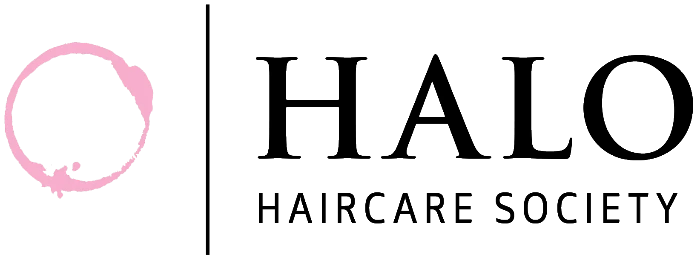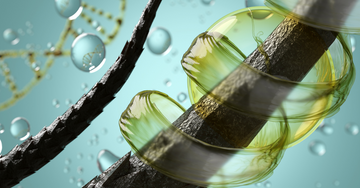Embracing Healthy Hair Through Menopause
Hello there, beauty! If you’re reading this, chances are you’re experiencing some changes in your hair due to menopause or perimenopause. First off, let me assure you: you are not alone, and it’s perfectly normal. Many women go through this transition, and while it can be frustrating, there are ways to manage it and maintain the luscious locks you love.
Why Hair Loss Happens During Menopause
During menopause, your body undergoes significant hormonal changes. The decrease in estrogen and progesterone, which are hormones that help hair grow faster and stay on the head longer, is a big factor. On the flip side, the relative increase in testosterone which is the hormone linked with male pattern baldness a derivative called DHT can cause hair follicles to shrink, leading to thinner hair and more hair loss. It's important to note that you will only have heighted hair loss from DHT if you have a enzyme responsible for DHT related hair loss. Read out blog here if you want to know more about DHT related Hair loss
But it’s not just about the hormones. Your scalp might also start behaving differently. You could notice an increase or decrease in oil production, which affects how your hair looks and feels. These changes can influence how hair follicles function, impacting your scalp skin barrier, hair’s health and growth cycle.
Along with scalp changes our hair can change too. Hair can become soft and downy or coarse and dull. Curly hair can straighten out and straighter hair can become curly. Learning how to care for your scalp will in turn help you manage the changes your hair will go through.
Our Philosophy: Plant-Based Solutions for Hair Growth
At our brand, we believe in harnessing the power of nature to support your hair’s health. We use plant-based vasodilators, which help increase blood flow to the scalp. This increased circulation can extend the anagen phase, the growth phase of the hair cycle, ensuring more hair is actively growing at any given time. By improving blood flow and providing essential nutrients, we aim to keep your hair healthy and vibrant. We also use natural DHT blockers to help stop the formation of calcification which is what suffocates the the new hair as its trying to emerge, this formation is what leads to ministration of the hair follicles, thus leading to hair loss and thinning.
Techniques to Support Hair Growth
Hair Stamping/Micro-Needling
One of the techniques we recommend is hair stamping or micro-needling. This involves tiny needles creating micro-injuries on the scalp, which can stimulate hair growth by encouraging the body to send more blood and nutrients to the area. This can help rejuvenate your hair follicles and promote healthier, thicker hair. We recommend seeing a scalp therapist, trichologist or dermatologist to incorporate needling into your routine.
Infrared Therapy
Infrared therapy is another effective method. It uses light to penetrate the scalp and stimulate hair follicles. This can help increase hair density and thickness by promoting better circulation and nutrient delivery to the scalp.
Supplements for Hair Health
Supplements can play a crucial role in maintaining healthy hair. If you have a nutritional deficiency read our blog here. Please make sure you get a correct diagnosis with a trained professional like a trichologist to correctly diagnose your hair loss or scalp concern, where you can get blood work done before adding in supplements for nutritional deficiency. If menopause is causing your hair to change we love the following.
- Raspberry Leaf: Known for its hormone-balancing properties.
- Keratin: A protein gives structure to hair
- Collagen: Provides the amino acids that make up hair proteins.
- DHT Blockers: Helps to stop the conversion of testosterone to DHT.
We recommend taking Encore and/ or Belle to help feed the hair within and balance hormones.
A Routine to Embrace for Life
Creating a routine is key to maintaining your hair’s health during menopause and beyond. Here’s an example:
-
Internal and externals
- Take your hair supplements with a glass of water.
- Add in a nutrient rich diet and don't remove in major food groups. Check our blog here for more information.
- Use a gentle, plant-based shampoo and conditioner that contain plant-based vasodilation and DHT blockers.
- Apply Revitalise scalp serum to calm the scalp, improving skin barrier and follicle health, with the benefit of plant-based vasodilators to promote blood flow.
-
Tools
- Perform hair stamping/micro-needling once to twice a week on a clean scalp.
- Apply infrared therapy after micro-needling, but around 4-5 times a week.
- Massage your scalp to increase circulation.
-
Weekly
- Pre-treat scalp with hair oil and massage to improve follicle, and skin barrier health to provide a healthy environment to grow strong hair.
- Apply Reinforcement to ignite health growth through powerful vasodilating properties.
- Ignite growth and remove dead skin cells with scalp exfoliation. Mix Rejuvenate Dust with Oil as an invigorating scalp and follicle cleanse.
Remember, consistency is key. These practices should become a part of your lifestyle, not just a temporary fix. The results will be maintained as long as you continue to incorporate these methods into your routine.
Here is our curated bundle for those suffering with hormonal hair loss.
Encouragement
Menopause is a natural part of life, and the changes it brings can be challenging. But with the right approach and consistent care, you can maintain your hair’s health and vitality. Our philosophy of using plant-based solutions and proven techniques like micro-needling and infrared therapy offers a natural, effective way to support your hair during this transition.
So, here’s to embracing this journey with hope and confidence. With a dedicated scalp and hair care routine, you can keep what you have; healthy, beautiful hair. As healthy hair is beautiful hair at any length or texture. Remember, we’re in this together, and we’re here to support you every step of the way.
Stay beautiful inside and lets grow together.





